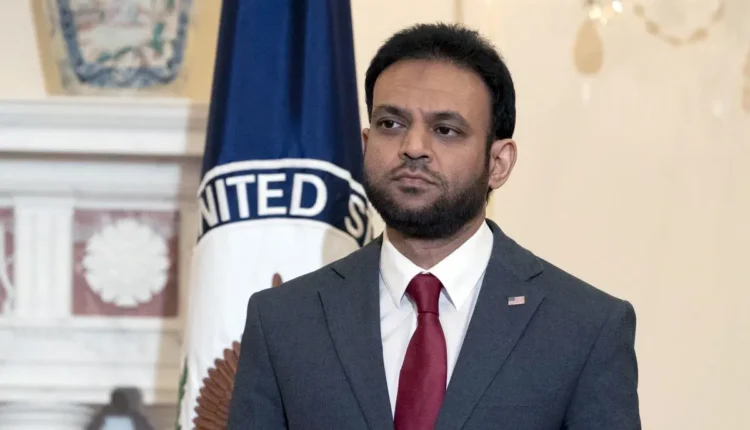In the intricate tapestry of global diplomacy, there are those rare individuals whose life’s work embodies the very essence of compassion, understanding, and tolerance. Rashad Hussain is undeniably one such luminary.
From his humble beginnings in Wyoming to his current role as the United States Ambassador-at-Large for International Religious Freedom, Hussain’s journey is a testament to the power of perseverance and the relentless pursuit of justice.
Early Life and Education of Rashad Hussain
Born to Indian-American immigrants in Wyoming and raised in Plano, Texas, Rashad Hussain’s upbringing was steeped in the values of hard work, education, and cultural diversity.
His father, Mohammad Akbar Hussain, a mining engineer, and his mother Ruqaiya instilled in him a deep sense of responsibility towards his community and the world at large. Surrounded by medical professionals in his family, including his sister Lubna and brother Saad, Hussain was destined for greatness from the outset.
Hussain’s academic journey was marked by excellence and a thirst for knowledge. A graduate of the esteemed Greenhill School in Dallas, Texas, he distinguished himself as a member of the school’s renowned policy-debate team, showcasing his intellectual prowess and oratory skills.
His insatiable curiosity led him to pursue a bachelor’s degree in philosophy and political science from the University of North Carolina at Chapel Hill, where he was elected to Phi Beta Kappa. His undergraduate thesis, titled “Assessing the Theistic Implications of Big Bang Cosmological Theory,” foreshadowed his future endeavors in exploring the intersections of faith and reason.
Continuing his academic odyssey, Rashad Hussain pursued further studies at the John F. Kennedy School of Government, obtaining a Master of Public Administration, and delving deeper into Arabic and Islamic Studies at Harvard University.
Armed with a multidisciplinary understanding of governance, culture, and religion, he embarked on a mission to bridge divides and promote mutual understanding in an increasingly interconnected world.
Career Trajectory
Hussain’s professional journey is a testament to his unwavering commitment to public service and the pursuit of justice. Following his tenure as a legislative aide for the House Judiciary Committee during the tumultuous aftermath of the September 11, 2001 terrorist attacks, he honed his legal acumen at Yale Law School, where he served as an editor of the Yale Law Journal.
A 2003 Fellow of the prestigious Paul & Daisy Soros Fellowships for New Americans, Hussain’s passion for civil rights and social justice guided his subsequent clerkship for civil rights icon Damon J. Keith of the United States Court of Appeals for the Sixth Circuit.
In January 2009, Hussain’s journey took a transformative turn as he was named deputy associate counsel to President Barack Obama, marking the beginning of his tenure in the Office of White House Counsel.
Tasked with addressing national security and new media issues, Hussain played a pivotal role in shaping the administration’s approach to Muslim outreach and engagement. His counsel was sought after by key figures such as Ben Rhodes, Obama’s chief foreign policy speechwriter, as they navigated complex geopolitical terrain and sought to build bridges with Muslim communities worldwide.
Rashad Hussain’s impact reverberated on the global stage when, in February 2010, President Obama appointed him as the United States Special Envoy to the Organisation of Islamic Cooperation (OIC).
Empowered by his deep-rooted understanding of Islamic culture and jurisprudence, Hussain spearheaded efforts to foster dialogue, promote religious tolerance, and combat extremism. His tenure was marked by a steadfast commitment to championing the rights of religious minorities and confronting anti-Semitism and religious discrimination wherever it surfaced.
Advocacy and Leadership
As a tireless advocate for religious freedom and human rights, Rashad Hussain’s leadership transcends borders and ideologies. His work within the Religious Community Rights Advocacy sphere has been instrumental in amplifying the voices of marginalized communities and challenging systemic injustices.
From condemning Holocaust denial to advocating for the protection of churches and synagogues in Muslim-majority countries, Hussain’s advocacy knows no bounds. His unwavering dedication to combating blasphemy laws and defending the rights of religious minorities, including Coptic Christians in Egypt, exemplifies his commitment to upholding universal principles of justice and equality.
In July 2021, President Joe Biden nominated Rashad Hussain to serve as the U.S. Ambassador-at-Large for International Religious Freedom, a testament to his exemplary track record and unwavering dedication to advancing human dignity and freedom of belief.
Following a rigorous confirmation process, Rashad Hussain assumed his role with humility and resolve, ready to confront the challenges of our time and uphold America’s proud tradition of championing religious liberty around the world.
Also Read:Gurbir Singh Grewal: From Attorney General to SEC Director

